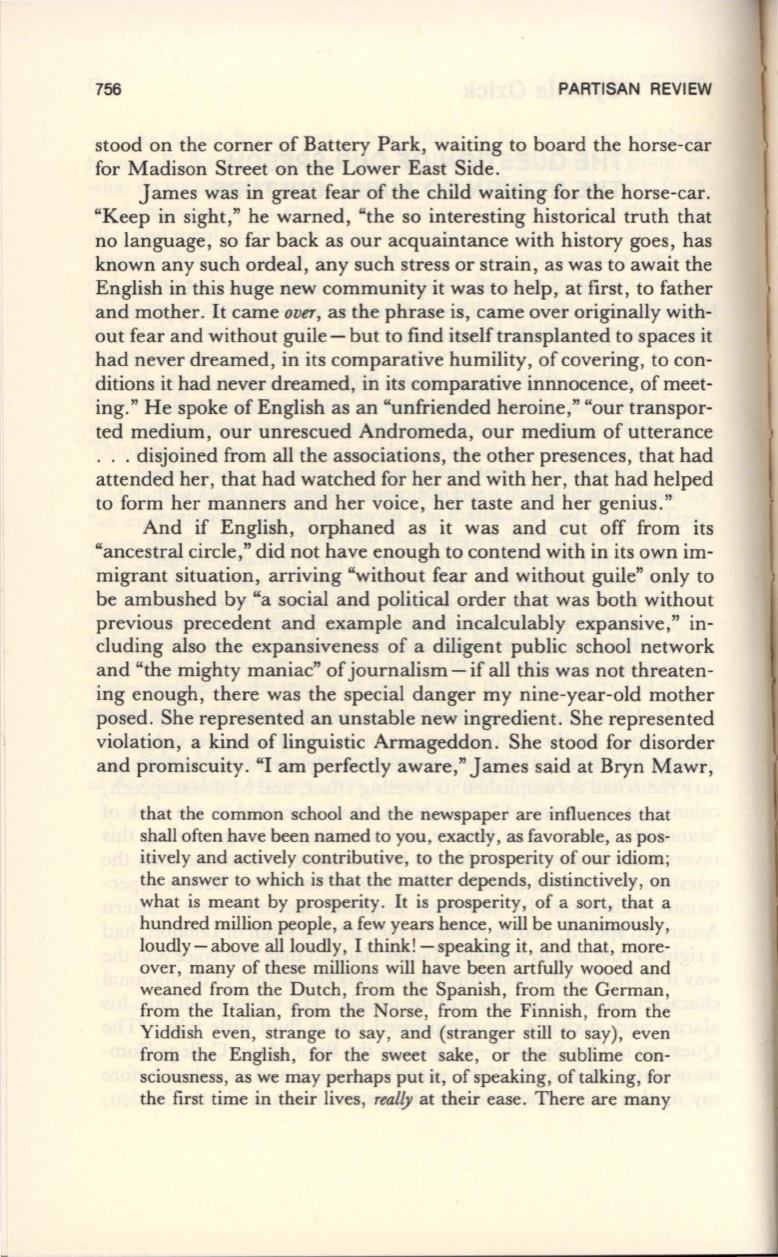
756
PARTISAN REVIEW
stood on the corner of Battery Park, waiting to board the horse-car
for Madison Street on the Lower East Side.
James was in great fear of the child waiting for the horse-car.
"Keep in sight," he warned, "the so interesting historical truth that
no language, so far back as our acquaintance with history goes, has
known any such ordeal, any such stress or strain, as was to await the
English in this huge new community it was to help, at first, to father
and mother. It came
over,
as the phrase is, came over originally with–
out fear and without guile- but to find itself transplanted to spaces it
had never dreamed, in its comparative humility, of covering, to con–
ditions it had never dreamed, in its comparative innnocence, of meet–
ing." He spoke of English as an "unfriended heroine," "our transpor–
ted medium, our unrescued Andromeda, our medium of utterance
... disjoined from all the associations, the other presences, that had
attended her, that had watched for her and with her, that had helped
to form her manners and her voice, her taste and her genius."
And if English, orphaned as it was and cut off from its
"ancestral circle," did not have enough to contend with in its own im–
migrant situation, arriving "without fear and without guile" only to
be ambushed by "a social and political order that was both without
previous precedent and example and incalculably expansive," in–
cluding also the expansiveness of a diligent public school network
and "the mighty maniac" of journalism- if all this was not threaten–
ing enough, there was the special danger my nine-year-old mother
posed. She represented an unstable new ingredient. She represented
violation, a kind of linguistic Armageddon. She stood for disorder
and promiscuity. "I am perfectly aware," James said at Bryn Mawr,
that the common school and the newspaper are influences that
shall often have been named to you, exactly, as favorable, as pos–
itively and actively contributive, to the prosperity of our idiom;
the answer to which is that the matter depends, distinctively, on
what is meant by prosperity. It is prosperity, of a sort, that a
hundred million people, a few years hence, will be unanimously,
loudly- above all loudly, I think! -speaking it, and that, more–
over, many of these millions will have been artfully wooed and
weaned from the Dutch, from the Spanish, from the German,
from the Italian, from the Norse, from the Finnish, from the
Yiddish even, strange to say, and (stranger still to say), even
from the English, for the sweet sake, or the sublime con–
sciousness, as we may perhaps put it, of speaking, of talking, for
the first time in their lives,
really
at their ease. There are many


